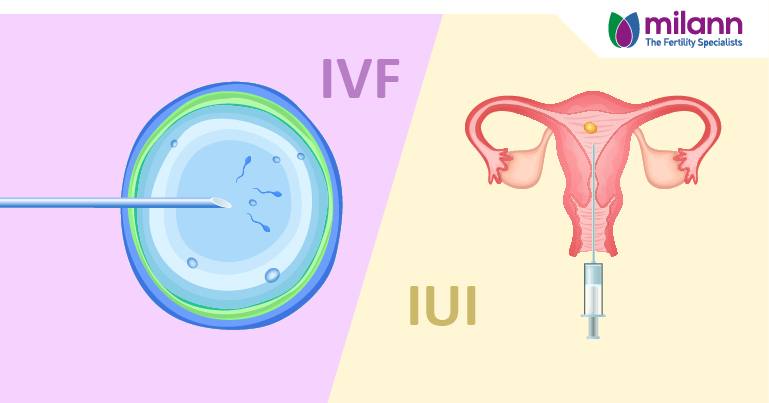
Struggling with infertility can be a challenging and emotional experience for many couples. Intrauterine insemination (IUI) and in vitro fertilisation(IVF) are two commonly used methods of fertility treatment that can increase the chances of becoming pregnant. However, the decision to choose between IUI vs. IVF is not always easy. In this article, we will provide a brief overview of IUI vs. IVF, and discuss the key differences between these two treatments to help those struggling with infertility make an informed decision.
What is IVF? In vitro fertilisation(IVF) is a fertility treatment involving the fertilisation of eggs with sperm in a laboratory setting. The resulting embryo is then transferred to the woman's uterus to achieve pregnancy. IVF can address various forms of infertility, including blocked or damaged fallopian tubes, male infertility, age-related infertility, and unexplained infertility. IVF also allows for the freezing of embryos for future attempts at pregnancy. Its success rate is about 50% per cycle, making it a powerful and popular fertility treatment. What is IUI? Intrauterine insemination (IUI) is a form of artificial insemination used as a fertility treatment option. It involves placing sperm inside a woman's uterus to increase the chances of successful fertilisation and pregnancy. Intrauterine insemination (IUI) is a fertility treatment option that can address a range of male and female infertility issues. Common indications for IUI include low sperm count, poor sperm motility, cervical mucus abnormalities, and unexplained infertility. Compared to in vitro fertilisation (IVF), IUI is generally less invasive, less expensive, and has a lower success rate. It may involve the use of fertility drugs to stimulate ovulation, or it may be timed with the woman's natural cycle. In summary, IUI is a simple and effective fertility treatment option that involves placing washed sperm from the male partner or a sperm donor directly into the female partner's uterus. It can be used to treat a variety of infertility issues and is often the first step in fertility treatment for many patients. According to national statistics from SART member clinics, the success rates of IUI (intrauterine insemination) vary depending on several factors. On average, the success rate of IUI is around 10-20% per cycle, with higher success rates for younger couples with no fertility issues. Other factors that can impact the effectiveness of IUI include the quality of the sperm being used, the timing of the insemination, and the age of the woman. Additionally, using fertility drugs to stimulate ovulation can increase the chances of success. It is important to note that success rates can vary greatly between individual clinics and patients, and that each case is unique. Therefore, it is recommended to discuss your individual situation with a fertility specialist to determine the best course of treatment. Difference between IVF and IUI Intrauterine insemination (IUI) and in vitro fertilisation(IVF) are two fertility treatments that can increase the chances of pregnancy. IUI involves the placement of sperm in the uterus, while IVF involves the fertilisation of eggs in a lab before transferring embryos to the uterus. IUI is less invasive, cheaper, and carries fewer risks than IVF. However, IVF has a higher success rate, especially for couples with more severe fertility issues. IVF also involves more medical intervention and is more expensive than IUI. With IUI, only one or two eggs are developed, while IVF involves the development of around 15 mature eggs. While IUI may be sufficient for some couples, IVF may be recommended if IUI does not work or for those with more complex fertility issues. Ultimately, the best course of action will depend on each individual's unique situation and should be discussed with a fertility specialist. Factors to consider when choosing between IVF and IUI When deciding between IVF and IUI, several factors should be considered, including age, fertility concerns, overall health, financial resources, and family history. IUI is less invasive, carries less risk, and is less expensive than IVF, but it has lower success rates. IVF, on the other hand, has the highest pregnancy rate per cycle of treatment but is more expensive and invasive. It is important to consult with a reproductive endocrinologist to understand which option is best for you based on your unique circumstances. Neither IUI nor IVF can guarantee a successful pregnancy with every try, and multiple attempts may be necessary. Ultimately, the choice between IVF and IUI will depend on individual preferences, diagnosis, and budget. Which treatment option should you choose?